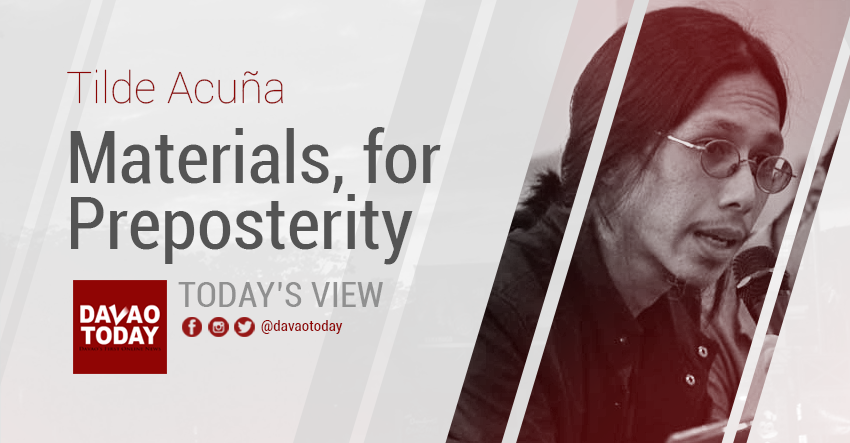On 1 September 1939, the United Kingdom began the massive evacuation of civilians in anticipation of the outbreak of the Second World War in Europe. The plan was called Operation Pied Piper, after the folktale with the eponymous musician who lured the children of the village of Hamelin away, never to be seen again. It may have been a poorly chosen fictional reference, but it indicated the fact that Operation Pied Piper focused on children, moving them away from their families and homes towards supposedly safer areas as a security measure during wartime.
Every day, after my class in Tuburan, we always recite this verse:
Our work is done
Our day is past
And I will hold so tight and fast
The things that I have learned today.
I have given with my heart and mind
The effort that it needs
And I will strive with all my might
To hold good thoughts, good words, and good deeds.
The challenges being posed by the continuing imposition of Martial rule on the poorest in Mindanao doesn’t seem to deter the members of the Sisters Association in Mindanao (SAMIN) who are renewing their commitment to serve those whom they called “God’s Anawim” (Greek word for God’s poor).
There’s no need to wait for another publicized tete-a-tete to express our intense admiration of him. When was the last time you thanked your President? Here it goes.
Notice how the Philippine Republic finds it irresistible to join the fad of fascist revival, as exemplified by settler-colonialist Israel and imperialist US. The marginalized classed of the “third” world bears the brunt of the excesses of the first ones that need to consolidate powers.
Until the root cause of the conflict is not resolved, peace in the Bangsamoro is a far-fetched thing. The Moro people continue to fight for their rights because these are not recognized in Philippine governance as with the rest of the marginalized people.
Many will still remember the last few months of 2015, when the national and international limelight focused on the Lumad of Mindanao and their Lakbayan to Manila after more than a year of harassments, evacuations, and killings (such as the Lianga Massacre) perpetrated by military and paramilitary agents. “Lumad” and “bakwit” became household terms, public concern was at its peak, and even heretofore, moderate and conservative personalities signified their support for the Lumad.
Earlier this week, Zamboanga city declared a state of calamity due to rice shortage amidst importation. Prices of rice in Zamboanga reached as high as P70 per kilo, leaving consumers especially the poor majority in a disadvantageous position.
What was achieved in this latest BBL is the strengthening of the national government’s hold over the new Bangsamoro entity by maintaining the primacy of national laws above regional laws, increasing reserved powers over defense and security as well as public order and safety and the continuing State and corporate control of resources within the Bangsamoro areas.
Last Monday I was on a bus back to the Netherlands from the town of Trier, Germany. Claiming to be the oldest city in Germany, and named as the capital of the northwestern extent of the Roman Empire in the fourth century, Trier is also better known as the birthplace of Karl Marx.







